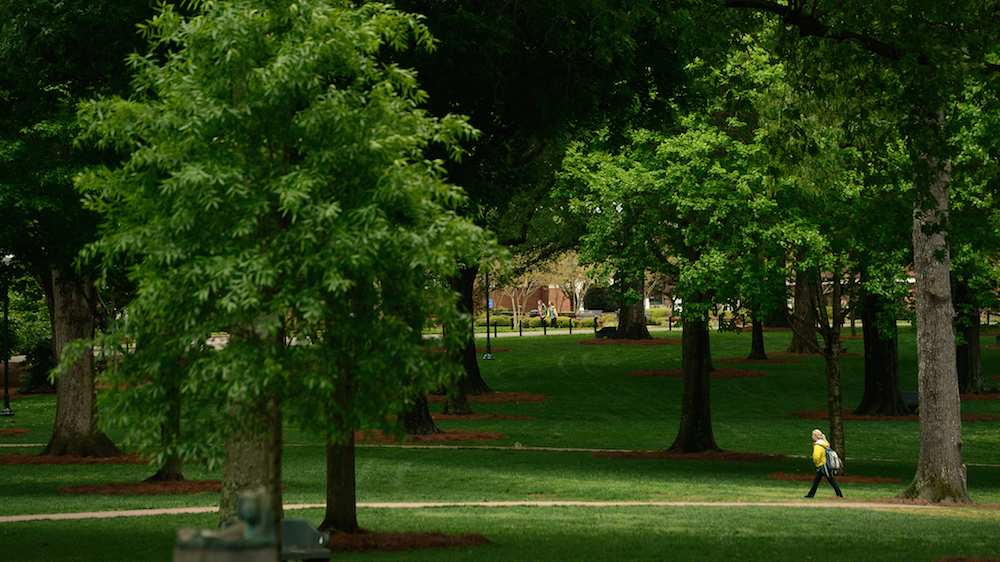Headlines
UM Awarded Tree Campus USA Recognition
The University of Mississippi is widely known for its beautiful campus, winning a number of honors, including a nod as the nation’s “Most Beautiful” from Newsweek. The university’s Department of Landscape Services also has been the recipient of several national recognitions.
Add another one to that list. Ole Miss has been recognized as a Tree Campus USA university.
This recognition is a program of the Arbor Day Foundation and recognizes college and university campuses that manage campus trees effectively, connect with the surrounding community to ensure urban forests are healthy and engage students through learning opportunities.
“Any time you can recognize an organization like ours for hard work and excellence, I think that’s a win,” said Jeff McManus, director of landscape services, Ole Miss Golf Course and airport operations. “It’s a big honor to be recognized as a Tree Campus USA and it shows a great commitment by our leaders and employees on the front line.”
The mission of the Department of Landscape Services is to expand campus beauty to attract people to campus and support learning, making the Ole Miss campus a desirable place to be.
“It is an honor and a privilege for the university to finally get Tree Campus USA status. It is a hard process to get through and they do not give this status lightly,” said Denise Hill, landscape services superintendent and a certified arborist. “We are in hopes that this status helps us to be good stewards of our trees that are such a huge part of what makes this campus beautiful. We have a hardworking and dedicated staff that prides themselves in the job they do regardless of the recognition, but sometimes it is really nice to get the recognition so that you know others are enjoying your work.”
At Ole Miss, landscape services workers plant an average of 200 new trees on campus each year. Just last year, more than 6,500 shrubs were planted. Since 2008, this department has planted more than 5,300 trees.
Tree management practices make the campus more beautiful, combat pollution and help reduce energy costs by providing shade and blocking cold winds in the winter.






























